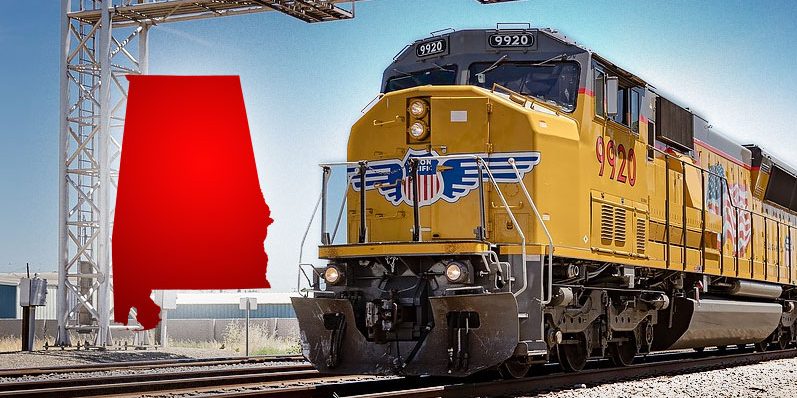These days, it’s almost impossible to open a newspaper or check a news feed online without encountering discussion of the challenges facing the nation’s supply chain.
As the economy continues the long and laborious process of pulling itself out of the depths reached since the early days of the pandemic, hurdles like the supply chain backup cause serious strain for consumers and businesses alike.
As Alabama and the rest of the nation navigate inflationary pressures in the months ahead, it’s more important than ever that we do all we can to keep the freight moving as smoothly as possible. If we fail to do so, we can expect higher prices, longer delays and tighter inventory to linger even longer than they already have.
Freight rail is a pivotal component to keeping the supply chain moving. Under most conditions, rail moves products and commodities of all kinds quickly, efficiently, and affordably, enabling businesses to operate efficiently and consumers at the end of the supply chain to expect their goods to arrive on time. This is especially important for an area like ours here in Alabama that is reliant on freight rail moving to and from the Port of Mobile to help get our goods and commodities to markets around the world.
During times like these, the idea that we’d throw a wrench into this essential transportation infrastructure is unthinkable. A push by taxpayer-funded Amtrak to add passenger rail service, without any infrastructure improvements, to the existing freight rail corridor between Mobile and New Orleans, threatens to do just that.
This concept may seem palatable enough at first glance. But on closer inspection it’s clear that now is the worst possible time to rush into a proposal with so much potential to further hamstring the already-strained regional and national supply chain – particularly when the costs and benefits still need so much more scrutiny.
The fiscal impact, for one, will be significant. Amtrak, an entirely taxpayer-funded entity that received $66 billion in aid in the 2021 infrastructure bill, isn’t offering to pay its share of what it will cost to expand infrastructure to support additional traffic for the new service being proposed. And, without the necessary infrastructure, communities can expect more traffic congestion while shippers and consumers well beyond this corridor can expect more product delays.
That’s not to say that expansion in support of increased traffic isn’t feasible – or even needed. But regardless, nothing should be added to the Mobile to New Orleans corridor that impedes the ability of consumers to receive our goods and commodities to market in a timely manner or risks using billions in public money to exacerbate the supply chain pressures already weighing on households nationwide. Communities along the proposed route also deserve to have a say in how the rail lines they live with every day will be impacted by the proposal. Communities should know which towns would host stops – and which towns would simply host greater rail traffic, delayed crossing, noise, congestion, and more.
As representatives of Alabama’s business and agricultural communities, we are acutely aware of how
heavily our members and our broader economy depend on efficient freight rail delivery and on-time reliability. And while passenger rail no doubt has its appeal, this is no time to rush into a proposal with potentially huge ramifications without a full understanding of what’s at stake.
At a minimum, it’s vitally important that federal decisionmakers like the Surface Transportation Board carefully review and scrutinize the proposal’s impacts to existing rail traffic in the area – from traffic and congestion to cost and demand.
Alabama has worked too hard to recover over these last two years to take a careless step backward.
Paul Pinyan serves as Executive Director of the Alabama Farmers Federation. Robin Stone serves as Executive Director of the Business Council of Alabama.













